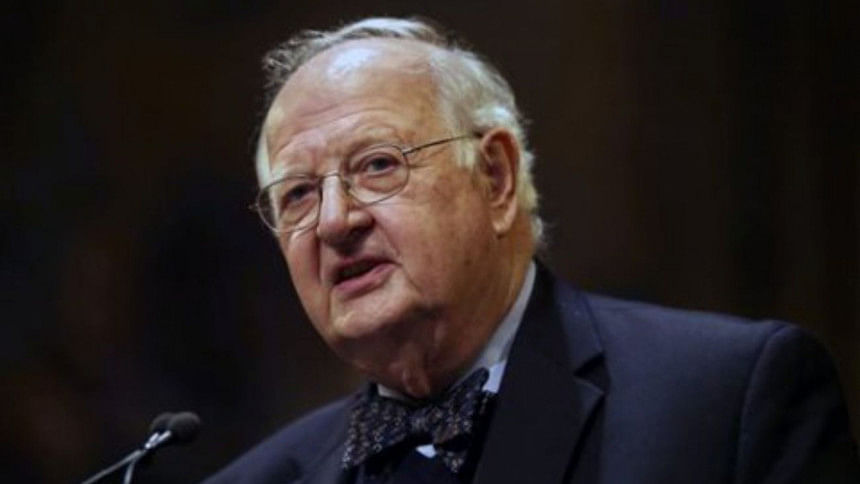THE NOBEL MIND ON ECONOMIES OF POOR COUNTRIES

THE winner of the 2015 Nobel Prize in the field of economics, Angus Deaton, professor of Economics and International Affairs of the Woodrow Wilson School of Public and International Affairs, Princeton University, spent his career working on consumption, poverty and inequality. While announcing the winner of the award, the Royal Swedish Academy of Sciences mentioned, "Deaton's focus on household surveys has helped transform development economics from a theoretical field based on aggregate data to an empirical field based on detailed individual data."
Professor Deaton's major focus is on measuring consumption at the individual household level by using household surveys and analysing detailed data. Instead of aggregate measures in economics such as gross domestic product, Professor Deaton is interested in how households consume, for example food, or how much they spend on housing or health. His work on measuring consumption provided better understanding of poverty and ways to fight it. To him, consumption, not income, is a better measurement of poverty.
The very choice of the field of Deaton's work has relevance for economies around the world, where poverty, malnutrition and inequality are ubiquitous. In one of his popular books, The Great Escape: Health, Wealth and Origins of Inequality, Deaton delineates how the world has become a better place to live than ever before, as strides on progress have been made by countries. However, poverty and inequality continue to be present in so many countries. And this is observed not only in poor countries, but also in rich countries, such as the USA.
Deaton takes a strong position on the role of foreign aid in recipient countries. His scepticism about aid effectiveness is also valid in the case of many aid receiving countries, including Bangladesh. He believes that aid to poor countries given by donor countries are driven by economic and political interest of donor countries, and thus did not do much to improve the situation of recipient countries. He claims that such aid has given rise to corrupt government in poor countries. Rather, foreign aid in these countries stands in the way of the development of institutions which are critical for taking development forward. So instead of foreign aid, he suggests the removal of trade barriers, such as import quota and high tariffs on goods produced and exported by low-income countries. He also suggests that the money allocated as foreign aid could be used for research on diseases in poor countries or to increase agricultural productivity of those countries. His diagnosis is that in most cases, the attempt to do good for poor countries lack adequate understanding of those countries due to which countries are more harmed than benefited.
Angus Deaton is optimistic about changing policies by being associated with the government machinery. He urges his students to work on and within their own governments for the development of their countries. While Deaton's call for working for the motherland is encouraging, the reality is rather challenging. In poor countries, where poverty and lack of governance go hand in hand, "a few good men" in the corrupt system cannot really do much. They would rather be made "outcasts" in that very political system, and would be forced to leave behind their noble ideas. Who would know this better than us? Without deep diving into the overall reform of political and social institutions, development will continue to fall short of the expected level.
Deaton's work is about using data to formulate policies. Inadequate and inaccurate data on poverty and malnutrition make it difficult to understand the extent of progress on these indicators. As a result, the knowledge on the efficiency and effectiveness of resources spent on poverty alleviation becomes murky. This also obstructs the enforcement of accountability of public resources. Deaton eloquently discusses in his book, The Analysis of Household Surveys: A Microeconometric Approach to Development Policy, how features of data can be presented for broader understanding through simple descriptive statistics or graphical illustrations. However, he is careful about too much dependence on statistics. He attempts to make a balance between statistics and economic theory. He thus warns "technique is never a substitute for the business of doing economics."
Recognition of Deaton's work comes at a time when inequality has become a growing concern for the world, despite reduction of poverty levels by a great extent when compared to 1990. Last month, global leaders committed to reducing inequality within and among countries through the adoption of the Sustainable Development Goals at the United Nations.. His Nobel Prize also comes at a time when SDGs have laid importance on "high-quality, timely and reliable data desegregated by income, gender, age, race, ethnicity, migratory status, disability, geographic location and other characteristics relevant in national contexts". To fulfil this, the SDG declaration has emphasised enhanced capacity-building support to countries.
In Bangladesh, availability of in-depth and real time data at the household level is still limited. Not only does the capacity of the Bangladesh Bureau of Statistics (BBS) need to be strengthened, but the independence of the BBS is to be maintained as well, in order to have reliable data from its surveys. Deaton's Nobel Prize should remind us that policymaking in the area of poverty reduction will continue to be less effective unless there is an improvement in data production and dissemination at the national level.
The writer is Research Director at the Centre for Policy Dialogue, currently a Visiting Scholar at the Centre for Study of Science, Technology & Policy, India.

 For all latest news, follow The Daily Star's Google News channel.
For all latest news, follow The Daily Star's Google News channel. 



Comments